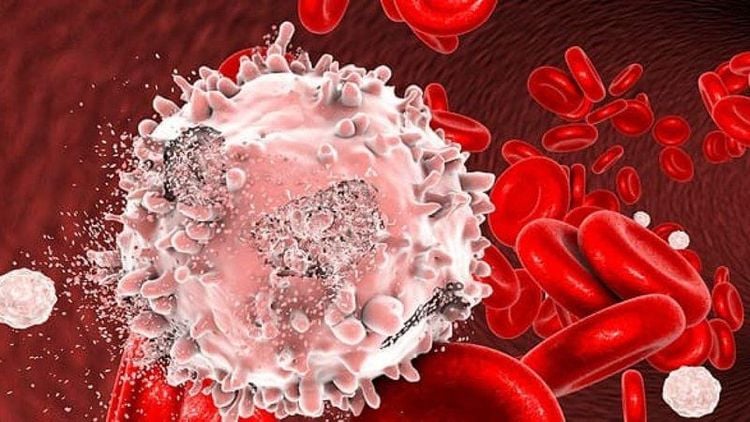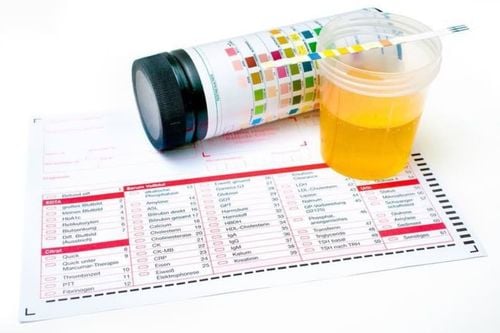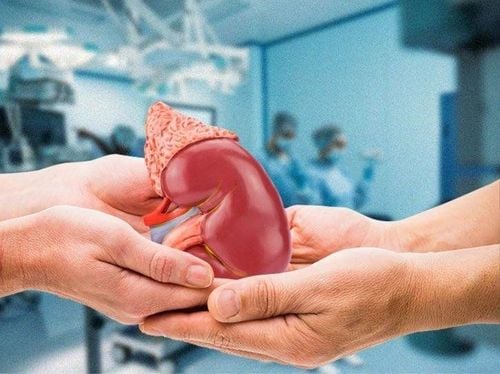This article is reviewed by Dr. Vo Ha Bang Suong, a General Internal Medicine specialist at Vinmec Phu Quoc International Hospital.
White blood cells (WBCs) are essential components of the human immune system, helping the body combat harmful external agents and prevent infections. An elevated level of WBCs in the urine signals potential underlying health issues that should not be overlooked.
1. The Crucial Role of White Blood Cells in the Body
White blood cells, also known as leukocytes, are one of the three main types of blood cells, alongside platelets and red blood cells. WBCs play an indispensable role in the immune system, protecting the body from infections and external threats. These cells are produced and stored in various parts of the body.
In a healthy individual, WBCs are either absent or present in very low quantities in the urine. The normal range for WBCs in urine is 10-25 cells/µL.

2. Why Are White Blood Cells Elevated in Urine?
When a urinalysis reveals high levels of WBCs, it could indicate an infection or another health issue. Additional tests are often necessary to pinpoint the cause.
Common causes of elevated WBCs in urine include:
2.1. Bladder Infection
Bladder infections can irritate the bladder lining, prompting an immune response where WBCs work to destroy harmful bacteria. Symptoms may include bladder pain, burning sensations during urination, and frequent urination.
Bladder infections are most common in adolescents and adult women, with sexual activity and pregnancy being significant risk factors. Such infections often lead to elevated WBC levels in urine.
2.2. Urinary Tract Infections (UTIs) and Obstructions
UTIs occur when harmful bacteria enter the urinary tract through the urethra. This type of infection results in increased WBC levels in the urine and symptoms such as pain or burning during urination.
Urinary obstructions, often caused by kidney stones, ureteral stones, or bladder stones, can lead to infection by blocking the flow of urine. Less common causes include congenital abnormalities in the urinary system, which can partially or fully obstruct urine flow. Any urinary stasis increases the risk of infection and subsequent elevation in WBCs.
2.3. Kidney Infections
Kidney infections, such as pyelonephritis, are severe forms of UTIs. If left untreated, they can cause complications. Early detection is crucial for effective treatment.
Symptoms accompanying elevated WBCs in urine include back pain, flank discomfort, and frequent urination, all of which can significantly impact the patient’s quality of life. Therefore, the patient should immediately seek medical attention if they experience those symptoms in order to be treated promptly.
In addition to the primary causes mentioned earlier, high white blood cell (WBC) counts in urine can also result from the following factors:
- Holding in urine: A habit of delaying urination causes the bladder to become overfull, leading to urine retention. This creates an environment where bacteria can grow, resulting in increased WBC levels.
- Pregnancy: Some pregnant women experience elevated protein and WBC levels in their urine. The growing fetus can exert pressure on the urinary tract, causing blockages and potentially leading to infections. Proper diagnosis and classification are essential to prevent severe complications such as pyelonephritis or kidney infections.
- Sexually transmitted infections (STIs): STIs that cause inflammation of the urethra or genital tract can also lead to high WBC levels in urine.
In some medical conditions, there will be white blood cells in the urine without actually affectingthe urinary tract system:
- Certain cancers, such as prostate, bladder, or kidney cancer.
- Blood disorders, such as sickle cell anemia.
- The use of certain medications, including painkillers and anticoagulants.
- Overexertion from strenuous exercise or heavy physical activity.

3. How to Treat Elevated White Blood Cells in Urine
Treatment for high WBC levels in urine depends on the underlying cause:
- For urinary tract infections (UTIs): Short-term antibiotic therapy is typically used. In cases of recurrent infections, long-term antibiotics may be necessary. Increasing water intake can help reduce bladder and urinary tract infections.
- For urinary blockages: Treatment involves addressing the infection and resolving the obstruction. Surgery may be required for large stones, while smaller stones may pass naturally with increased water consumption. If the obstruction is caused by a malignant tumor, treatment options may include surgery, chemotherapy, or radiation therapy.
It is crucial to follow the prescribed treatment regimen. Patients should undergo necessary tests and follow their doctor’s recommendations. Self-medicating without professional guidance can worsen the condition or lead to complications.
To arrange an appointment, please call HOTLINE or make your reservation directly HERE. You may also download the MyVinmec app to schedule appointments faster and manage your reservations more conveniently.













